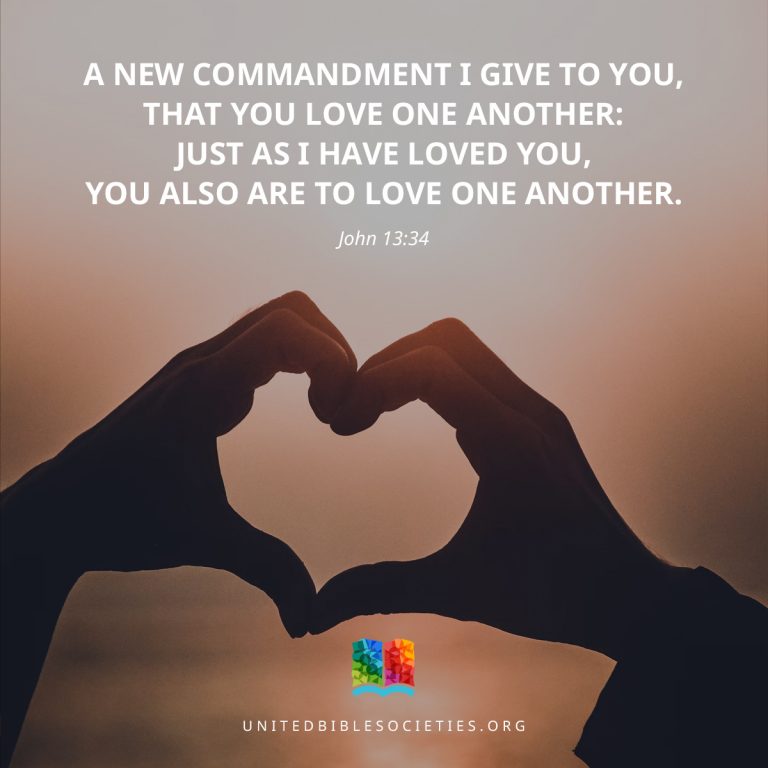1 Do the Jews then have any advantage over the Gentiles? Or is there any value in being circumcised? 2 Much, indeed, in every way! In the first place, God trusted his message to the Jews. 3 But what if some of them were not faithful? Does this mean that God will not be faithful? 4 Certainly not! God must be true, even though all human beings are liars. As the scripture says,
“You must be shown to be right when you speak;
you must win your case when you are being tried.”
5 But what if our doing wrong serves to show up more clearly God's doing right? Can we say that God does wrong when he punishes us? (This would be the natural question to ask.) 6 By no means! If God is not just, how can he judge the world?
7 But what if my untruth serves God's glory by making his truth stand out more clearly? Why should I still be condemned as a sinner? 8 Why not say, then, “Let us do evil so that good may come”? Some people, indeed, have insulted me by accusing me of saying this very thing! They will be condemned, as they should be.
No One Is Righteous
9 Well then, are we Jews in any better condition than the Gentiles? Not at all! I have already shown that Jews and Gentiles alike are all under the power of sin. 10 As the Scriptures say:
“There is no one who is righteous,
11 no one who is wise
or who worships God.
12 All have turned away from God;
they have all gone wrong;
no one does what is right, not even one.
13 Their words are full of deadly deceit;
wicked lies roll off their tongues,
and dangerous threats, like snake's poison, from their lips;
14 their speech is filled with bitter curses.
15 They are quick to hurt and kill;
16 they leave ruin and destruction wherever they go.
17 They have not known the path of peace,
18 nor have they learned reverence for God.”
19 Now we know that everything in the Law applies to those who live under the Law, in order to stop all human excuses and bring the whole world under God's judgment. 20 For no one is put right in God's sight by doing what the Law requires; what the Law does is to make us know that we have sinned.
How We Are Put Right with God
21 But now God's way of putting people right with himself has been revealed. It has nothing to do with law, even though the Law of Moses and the prophets gave their witness to it. 22 God puts people right through their faith in Jesus Christ. God does this to all who believe in Christ, because there is no difference at all: 23 everyone has sinned and is far away from God's saving presence. 24 But by the free gift of God's grace all are put right with him through Christ Jesus, who sets them free. 25-26 God offered him, so that by his blood he should become the means by which people's sins are forgiven through their faith in him. God did this in order to demonstrate that he is righteous. In the past he was patient and overlooked people's sins; but in the present time he deals with their sins, in order to demonstrate his righteousness. In this way God shows that he himself is righteous and that he puts right everyone who believes in Jesus.
27 What, then, can we boast about? Nothing! And what is the reason for this? Is it that we obey the Law? No, but that we believe. 28 For we conclude that a person is put right with God only through faith, and not by doing what the Law commands. 29 Or is God the God of the Jews only? Is he not the God of the Gentiles also? Of course he is. 30 God is one, and he will put the Jews right with himself on the basis of their faith, and will put the Gentiles right through their faith. 31 Does this mean that by this faith we do away with the Law? No, not at all; instead, we uphold the Law.
1 Ŋen ŋawande Alyawuḏ yerṯo ŋəməñaṯo led̶a ɽrəto? Walla d̶aməd̶aṯa d̶awande d̶uɽəd̶ənia d̶ənanaid̶ia? 2 Alyawuḏ yerṯo ŋen ŋwaiña ŋəməñaṯo led̶a ɽrəto. Ananoŋ, yënəŋulu yaneinu ŋen ŋə-Rəmwa ṯa aiyərəmoṯe. 3 Orn ŋen ŋaɽo ṯau ndə led̶a ləmaṯan iŋulu lero lərəmoṯwa ŋen iŋi ŋopia? Ŋen eŋen ŋaɽwad̶aṯa ŋəbəd̶ia d̶əd̶urwaṯa d̶ə-Rəmwa ṯa ad̶əɽeṯe d̶əpiano? 4 Ndo, kwai kwai! Ŋgiṯr ŋen aŋələŋini ṯa Rəmwa raɽo d̶eṯəm orn led̶a pred̶ laɽəlen. Garno ŋen ŋəwërd̶ənu ṯa,
“Ndə agəɽwata ŋen aŋələŋini ṯa agaɽo d̶eṯəm,
na ṯa agid̶i ŋad̶ame led̶a ildi ləŋageiya
liga ŋen ŋəlaɽəŋa ŋinḏeini.”
5 Orn ndə ŋen ŋəd̶urwaṯo ŋə-Rəmwa ŋəbërrəŋeid̶ənia ndə ləgəɽrano eŋen, ləgabəṯrau? Ŋen ŋə-Rəmwa ŋaɽiano ndə rënəŋu rakəmia led̶a? (Egaɽwata ëli ŋen ŋarno led̶a ləɽwata.) 6 Ndo, kwai kwai! Ləgabaṯr ṯa Rəmwa raɽiano eŋen, ŋen rënəŋu raɽwad̶aṯa rakəmia led̶a lalo?
7 Orn, ŋen ŋanṯa ŋəɽəwen, na ŋen ŋəd̶eṯəm ŋə-Rəmwa ŋəbërrəŋeid̶əma kaiñ na ŋanaicia ŋaɽrwa, igakəmənia məldin ŋen ŋanṯa ŋen ŋəlëɽəñi ŋeicia ed̶a? 8 Fəṯau ləgaber ləgaɽwatar ṯa, “Alid̶r ŋen ŋeicia ṯa ŋen ŋəŋəra ŋid̶i aŋətwod̶au ŋəŋəra?” Đeṯəm, led̶a ləmaṯan landəbwaid̶ia ŋen, ldaṯa ṯa, nanda ñagaɽwata ŋen iŋi d̶urri! Ŋen ŋaŋəra ṯa lënəŋulu lakəmənu.
Ed̶a gera gənəŋ gəd̶urwaṯo eŋen
9 Ŋen ŋaɽo ṯau? Lëndr ləŋgr ləgəɽr Alyawuḏ ləgəməñaṯr led̶a ɽrəto? Ndo, kwai kwai! Ŋen ŋanṯa ləgasəkr Alyawuḏ na led̶a gerṯe laɽo Alyawuḏ ṯa lënəŋulu pred̶ lakasənu ŋenŋa ŋeicia 10 Ŋen ŋawërd̶ənu ṯa,
“Ed̶a gero gənəŋ gəd̶urwaṯo eŋen,
d̶eṯəm gerṯe gaɽo gonto,
11 ed̶a gero gənəŋ gələŋeṯo ŋen,
ed̶a gero gənəŋ gəbapwaiña Rəmwa.
12 Led̶a pred̶ laməño ldəṯwe lënəŋulu pred̶ lid̶u ŋen ŋeicia.
Ed̶a gero gənəŋ gəbəd̶ia ŋen ŋəŋəra,
d̶eṯəm walla gonto.
13 Ŋogor eŋen ŋarno rel irri rəgagid̶ənu.
Lënəŋulu laɽwata ŋad̶əna raŋəlara.
Laɽwata ŋen ŋeɽe ŋarno ŋəsia ŋimwa yeɽo cəŋge.
14 Ëiñua esen yundeinu d̶aboŋad̶a na ŋenŋa ŋeɽe.
15 Rəmanəña eren ralaldiña ṯa lënəŋulu aləɽiñəd̶e.
16 Lënəŋulu laɽatad̶a d̶əgera na d̶wana kaiñ ed̶en alo ləbəɽau.
17 Lënəŋulu laijəba d̶ad̶ d̶əd̶ëuṯaralo.
18 Na lënəŋulu lero ləd̶əñia Rəmwa.”
19 Ləgaləŋeṯr ṯa ŋen iŋi Alganun yaɽwata, yënəŋu yaɽwatiṯia led̶a ildi ləfo eŋələŋ ŋ-Alganun, ṯa ëiñua eled̶a pred̶ aiyëndeid̶əni na ṯa led̶a pred̶ lalo aləfeṯe ed̶akəmia d̶ə-Rəmwa. 20 Ed̶a gero gənəŋ gəɽwad̶aṯa gəbəd̶ənia gəd̶urwaṯo eŋen Rəmwa nëiñua ŋen ŋanṯa gënəŋu gëbəd̶ia ŋen pred̶ ŋ-Alganun ywonaṯa. Ŋen ŋanṯa Alganun yabërrəŋaicia led̶a ŋen ṯa aləŋeṯe ŋen ṯa lënəŋulu lëbəd̶ia ŋen ŋeicia.
Ŋen ŋəd̶urwaṯo ŋeṯo eŋen ŋəd̶wonaṯa ig-Almasiya
21 Orn d̶əñid̶i ŋen ŋəd̶urwaṯo ŋə-Rəmwa ŋërrəŋeid̶ənu ed̶ad̶ id̶i d̶əfo aləsoŋ gerṯe eŋen ŋ-Alganun, orn Alganun na alanəbiya laməd̶aṯo ŋen iŋi. 22 Ŋen ŋəd̶uiwaṯo ŋə-Rəmwa ŋafo ŋen ŋanṯa led̶a pred̶ ildi lëndu ŋen ŋəlëɽəŋu d̶wonaṯad̶a i-Yesu Almasiya. Led̶a pred̶ laɽwaṯo Rəmwa nëiñua, 23 ŋen ŋanṯa led̶a pred̶ lid̶u ŋen ŋeicia na lafo lero ləɽiñəd̶aid̶ia eŋaɽrwa ŋə-Rəmwa, 24 orn led̶a pred̶ lëbəd̶ənia ləd̶urwaṯo eŋen Rəmwa nëiñua na Rəmwa rëbəd̶ia ṯia eŋen ŋəd̶ənaica məɽəməɽeñ ŋen ŋanṯa d̶əpəɽa id̶i Almasiya Yesu gənaid̶o. 25 Ŋen ŋanṯa Rəmwa rëɽu Yesu Almasiya gəɽo d̶əɽəd̶ənia, ṯa led̶a ildi lëndu ŋen ŋəlëɽəŋu narna aloɽəbeini Rəmwa nano ŋəfəniŋa ŋəlëɽəŋu. Ŋen iŋi ŋërrəŋaid̶ia ŋen ṯa rad̶urwaṯo eŋen. Rënəŋu raŋgiṯu ŋen ŋeicia ŋəled̶a ildi ləfo pənde, liga Yesu gəmulu gəɽiñənia, ŋen ŋanṯa d̶walarano d̶əlëɽəŋu. 26 Đeṯəm, rënəŋu ranaid̶o Yesu ṯa arërrəŋaid̶i ŋen ṯa rënəŋu rad̶urwaṯo eŋen, ṯa rënəŋu rad̶urwaṯo eŋen na ṯa rëbəd̶ia led̶a ləd̶urwaṯo eŋen ildi lëndu ŋen ŋə-Yesu.
27 Nṯia d̶ëminia bəɽan d̶əled̶a d̶eṯo ŋga? Đëminia bəɽan d̶ero ŋeniano ndëuwər. Ed̶a, ŋen ŋəwande? Ŋenŋa ŋəŋəmëɽria iŋi ŋ-Alganun led̶a ləbəd̶ia? Ndo, ŋenŋa ŋəd̶wonaṯa i-Yesu. 28 Ŋen ŋanṯa ləgëndr ŋen ṯa ed̶a gëbəd̶ənia gəd̶urwaṯo eŋen d̶wonaṯad̶a d̶əlëɽəŋu, na gerṯe d̶id̶ia d̶əŋen ŋ-Alganun kwai kwai. 29 Orn Rəmwa raɽo Rəmwa r-Alyawuḏ ikərəŋ? Gerṯe rënəŋu raɽo Rəmwa rəled̶a ildi gerṯe laɽo Alyawuḏ com, 30 ŋen ŋanṯa Rəmwa raɽo ronto, irri rid̶i arid̶i led̶a ləd̶urwaṯo eŋen ildi luɽəd̶ənu ndə lënəŋulu ləbëndia ŋen ŋəlëɽəŋu d̶wonaṯad̶a, na rid̶i arid̶i led̶a ləd̶urwaṯo eŋen com, ildi lero luɽəd̶ənia, ndə lënəŋulu ləbëndia ŋen ŋəlëɽəŋu d̶wonaṯad̶a. 31 Ŋen ŋanṯa ŋenŋa iŋi, ləgëbəd̶iar Alganun yipiano d̶wonaṯad̶a? Ndo, kwai kwai, orn ləgëbəd̶iar Alganun ywonḏəṯo alo.



